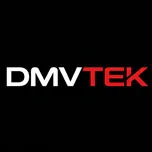In an era where data is the new currency and cyber threats grow more sophisticated by the day, cybersecurity is no longer optional—it’s mission-critical. Businesses across every industry must implement strong cybersecurity best practices not only to protect assets and customer data but also to comply with evolving regulatory requirements.
Whether you’re a small business or an enterprise, understanding and adopting cybersecurity best practices will help you stay protected, mitigate risk, and maintain the trust of your clients.
At DMVTEK, our Cybersecurity Services are designed to help organizations of all sizes implement these practices effectively and affordably.
Why Cybersecurity Best Practices Matter in 2025
In 2025, businesses are more connected than ever. From cloud services to mobile apps to IoT devices, the digital footprint of every company has expanded—and so has its attack surface. Cybercriminals now use AI-powered tools to launch phishing attacks, ransomware campaigns, and data breaches with precision.
Beyond the threat of data loss, failure to implement cybersecurity measures can lead to:
- Severe financial penalties
- Legal liabilities
- Operational downtime
- Loss of reputation and customer trust
- Violations of data privacy laws (GDPR, HIPAA, CCPA)
According to a 2024 IBM report, the average data breach costs organizations $4.45 million, making prevention significantly cheaper than response.
1. Implement Multi-Factor Authentication (MFA)
Passwords alone are no longer sufficient. Multi-Factor Authentication adds a second layer of security—like a one-time passcode or biometric scan—to ensure only authorized users gain access to systems.
DMVTEK helps clients deploy MFA across cloud applications, employee logins, and VPNs as part of our broader cybersecurity service offerings.
2. Keep Software and Systems Updated
Unpatched software is one of the easiest ways for attackers to exploit vulnerabilities. Best practice is to:
- Enable automatic updates
- Regularly patch operating systems and applications
- Use centralized update management for larger networks
DMVTEK provides ongoing network monitoring and management to ensure all systems remain secure and up-to-date.
3. Train Employees in Cyber Hygiene
Human error is the leading cause of cyber breaches. Regular training empowers your workforce to:
- Spot phishing emails
- Use strong passwords
- Avoid risky downloads
- Report suspicious activity
We integrate end-user awareness training into our security packages so your employees become your first line of defense.
4. Use Endpoint Protection and Antivirus Solutions
Endpoints such as laptops, mobile devices, and workstations must be protected. Deploy enterprise-grade antivirus and anti-malware solutions with real-time monitoring and automatic remediation.
Our 24/7 IT help desk and technical support ensures endpoint security incidents are addressed quickly before they escalate.
5. Establish Role-Based Access Control (RBAC)
Limit access to sensitive data based on job role. This ensures that employees only have the permissions necessary to do their work, reducing internal risks and minimizing exposure during a breach.
This is especially important for compliance with data privacy regulations like HIPAA or GDPR, where overexposure can lead to major fines.
6. Encrypt Data In Transit and At Rest
Encrypt all sensitive data—whether it’s stored in your systems or being transmitted between devices. This ensures that even if hackers gain access, the data is unreadable without decryption keys.
DMVTEK assists businesses in configuring secure VPNs, email encryption, and full-disk encryption for mobile devices and laptops.
7. Create and Test an Incident Response Plan
If a cyberattack occurs, knowing how to respond is critical. Your business should have:
- A documented incident response plan
- Clear roles and responsibilities
- A communication protocol
- Regular simulations and testing
We work with clients to create customized business continuity and disaster recovery plans, ensuring they’re never caught off guard.
8. Conduct Regular Security Audits
Cybersecurity is not “set and forget.” Regular audits and risk assessments identify new vulnerabilities, review system logs, and ensure compliance with internal and external policies.
DMVTEK offers scheduled audits and delivers actionable reports so you always know where you stand and what to improve.
9. Back Up Your Data Frequently
Frequent, automated backups are essential to recover quickly from ransomware or system failure. Store backups in multiple locations, including offsite or cloud-based environments.
We help configure secure backup strategies as part of our managed IT services, offering rapid recovery options in case of disruption.
10. Stay Informed About Evolving Threats
Cybersecurity is an ongoing battle. Stay updated on emerging threats, tactics, and technologies through trusted industry sources.
At DMVTEK, our team constantly monitors trends and threat intelligence to protect our clients and adjust strategies as needed.
Final Thoughts
Cybersecurity best practices aren’t just for tech teams—they’re a shared responsibility across every level of your business. By implementing these foundational strategies, you’re not only reducing the risk of attack, but also demonstrating to clients, partners, and regulators that you take security and compliance seriously.
📞 Ready to upgrade your business’s cybersecurity posture? Contact DMVTEK today to schedule a risk assessment or learn more about our cybersecurity services.



